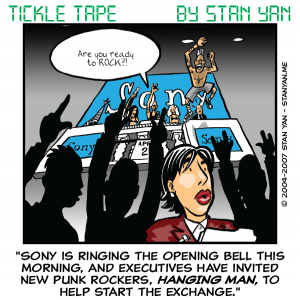When you’ve got a big trade on, it’s hard to control your emotions. It is difficult to forget that real money is on the line and that losing your stake is quite possible. Humans naturally avoid risk. We don’t like losing. People are even willing to gamble a large sum to avoid a potential loss than immediately accept a smaller but certain loss. Similarly, traders may hold on to a losing trade, and continue to watch it lose money, rather than face the loss. Why do we see money as so important? Money is associated with security, safety and happiness.
The media constantly bombards us with the idea that money is security. If we have money, we can buy a nice car and fancy clothes that will draw admiration from our friends and neighbours. The more money we have, the more security we will feel. It’s hard to abandon these images. Many traders are attracted to trading because of these images. The more money they make, the more status and freedom they believe they will gain. Although it is natural to associate money and profits with security, doing so can create biases that adversely impact trading decisions. Profitable trading demands a logical, unbiased mindset. It’s vital that you try to objectify your trades as much as possible.
Taking the emotions out of trading takes practice, but with a little preparation and planning, you can learn to trade objectively and effortlessly. Perhaps the most important strategy you can take is to limit your risk on a given trade and trade with money that you can afford to lose. By limiting your risk to a relatively small percentage of your trading capital, you will know that should the worst-case scenario occur, you can handle it easily. Similarly, if you feel that losing the stake on a given trade has little real personal significance, you will be able to treat the trade will little emotion. It’s easier to control fear when there is truly little to fear.
It’s also important to view profits and losses in terms of percentages. Rather than focus on concrete images of the actual dollars you are trading, which you will surely associate with what you can purchase with the money (such as car payments, groceries, or school tuition), you’ll be able to more objectively focus on the trade if you view profits and losses as abstractly as possible, as merely points or abstract digits.
Cultivating a rational, objective mindset is essential for profitable trading. But when your money is on the line, it can be hard to remain objective. By limiting your risk, trading with money you can afford to lose, and viewing profits and losses in abstract terms, you can more easily stay objective and trade in a peak performance mindset.


